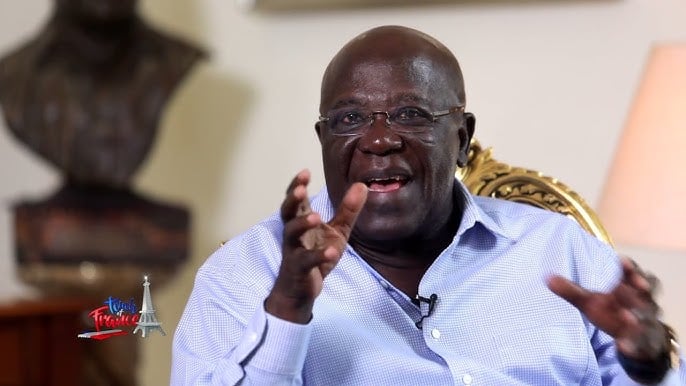Sir Sam Jonah, a prominent Ghanaian businessman, has called for a critical reassessment of the Ghanaians’ approach to development and accountability. He believes that the prevailing “mindset of dependency” has significantly hindered progress in the nation, particularly evident in the neglect of essential services like education and healthcare. Jonah pointed out that while many citizens readily contribute resources to construct churches, schools and hospitals remain neglected and in poor condition. This disparity highlights a concerning trend where faith is prioritized over tangible social infrastructure. Jonah believes that this mentality, which often posits that prayer can single-handedly resolve societal challenges, must undergo a radical transformation to achieve genuine development.
Jonah’s critique extends to the broader societal belief that innovation, hard work, and critical thinking can be overshadowed by a reliance on divine intervention. He explains that this mindset leads many Ghanaians to perceive prayer as a panacea for issues related to finances, health, and other societal challenges. While he acknowledges the significance of faith in many people’s lives, he warns against the consequences of neglecting personal accountability and critical thinking. This reliance on prayer can perpetuate cycles of poverty and exploitation, allowing unscrupulous individuals to manipulate public sentiment by promising prosperity without delivering substantive solutions.
The implications of this belief system are profound, particularly in Jonah’s observation of the elite members of society who have also adopted a similar attitude. He laments that many continue to uphold the notion that prayer alone can bring about financial stability or societal progress, even in the face of significant economic challenges. “Where else will the notion be taken seriously that a strong economy, food security or the eradication of preventable disease can somehow be achieved not by the use of our brains but by praying to God and casting and binding demons?” Jonah questions, illustrating the absurdity of rejecting proactive measures in favor of supernatural expectations.
Jonah’s reflections resonate with a broader critique of societal values in Ghana, emphasizing the need for a more action-oriented approach to development. He calls on citizens to recognize the weight of individual responsibility in the pursuit of progress and to cultivate a culture of innovation and accountability. This requires a concerted effort to shift away from the ingrained dependency on prayer for solutions and towards a mindset that embraces personal initiative and resourcefulness. Jonah advocates for prioritizing education, healthcare, and infrastructure improvements as necessary steps for achieving sustainable development.
Furthermore, Jonah addresses the challenges associated with this mindset, particularly in how it perpetuates social and economic inequalities. The failure to invest in critical areas like education and healthcare, compounded by a reliance on prayer, ensures that the most vulnerable populations remain trapped in cycles of hardship. He emphasizes that a holistic view of development should encompass not only spiritual well-being but also tangible advancements in sectors that provide citizens with the necessary tools to thrive. His call for a paradigm shift emphasizes the importance of actionable strategies, rather than solely relying on faith-based interventions.
In conclusion, Sir Sam Jonah’s message serves as a clarion call for Ghanaians to reassess their beliefs regarding development and accountability. By moving away from a pervasive dependency on faith as a solution and embracing a more proactive approach grounded in critical thinking, innovation, and personal responsibility, he advocates for a transformative shift that could yield substantial progress. His insights are particularly relevant in a society where the intersection of faith and development remains a pressing issue, highlighting the need for a balance between spirituality and actionable strategies to overcome the challenges facing the nation.


